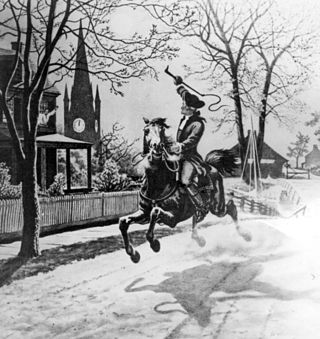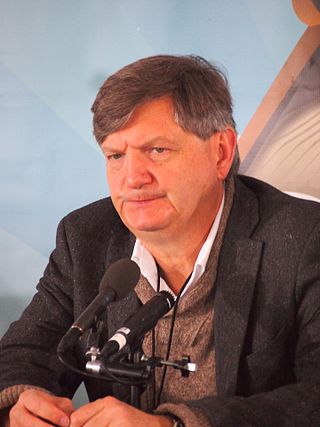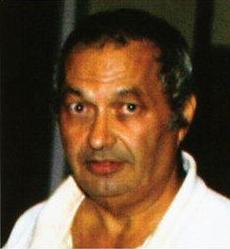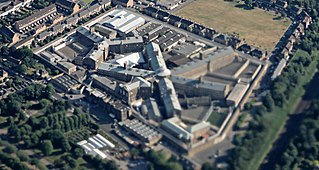Related Research Articles

Espionage, spying, or intelligence gathering is the act of obtaining secret or confidential information (intelligence). A person who commits espionage is called an espionage agent or spy. Any individual or spy ring, in the service of a government, company, criminal organization, or independent operation, can commit espionage. The practice is clandestine, as it is by definition unwelcome. In some circumstances, it may be a legal tool of law enforcement and in others, it may be illegal and punishable by law.

Mustafa Kamel Mustafa, also known as Abu Hamza al-Masri, or simply Abu Hamza, is an Egyptian cleric who was the imam of Finsbury Park Mosque in London, England, where he preached Islamic fundamentalist views.

The Espionage Act of 1917 is a United States federal law enacted on June 15, 1917, shortly after the United States entered World War I. It has been amended numerous times over the years. It was originally found in Title 50 of the U.S. Code but is now found under Title 18. Specifically, it is 18 U.S.C. ch. 37

R v Aubrey, Berry and Campbell, better known as the ABC Trial, was a trial conducted in the United Kingdom in the 1970s, of three men for offences under the Official Secrets Act 1911. The men were two libertarian journalists of a similar political viewpoint as much of the Labour government, and a resigned GCHQ source seeking to heighten scrutiny of government-authorised wire-tapping and limit the work of the American espionage agency, the CIA, in Britain. These aims were furthered in the following two decades achieved through detailed parliamentary scrutiny into and regular reports as to the work of security services, a Freedom of Information Committee and regulation of wire-tapping. Aside from very limited reportage from the Central Criminal Court, its early analysis comes in the account of one of its investigative-journalist defendants, Duncan Campbell, in the annual journal Socialist Register.

During the American Revolutionary War, the Continental Army and British Army conducted espionage operations against one another to collect military intelligence to inform military operations. In addition, both sides conducted political action, covert action, counterintelligence, deception, and propaganda operations as part of their overall strategies.

In 2005, The New York Times obtained a 2,000-page United States Army investigatory report concerning the homicides of two unarmed civilian Afghan prisoners by U.S. military personnel in December 2002 at the Bagram Theater Internment Facility in Bagram, Afghanistan and general treatment of prisoners. The two prisoners, Habibullah and Dilawar, were repeatedly chained to the ceiling and beaten, resulting in their deaths. Military coroners ruled that both the prisoners' deaths were homicides. Autopsies revealed severe trauma to both prisoners' legs, describing the trauma as comparable to being run over by a bus. Seven soldiers were charged in 2005.
The Lawrence Franklin espionage scandal involved Lawrence Franklin, a former United States Department of Defense employee, passing classified documents regarding United States policy towards Iran to Israel. Franklin pleaded guilty to several espionage-related charges and was sentenced in January 2006 to nearly 13 years of prison, which was later reduced to ten months' house arrest. Franklin passed information to American Israel Public Affairs Committee policy director Steven Rosen and AIPAC senior Iran analyst Keith Weissman, who were fired by AIPAC. They were then indicted for illegally conspiring to gather and disclose classified national security information to Israel. However, prosecutors later dropped all charges against them without any plea bargain.

James Risen is an American journalist for The Intercept. He previously worked for The New York Times and before that for Los Angeles Times. He has written or co-written many articles concerning U.S. government activities and is the author or co-author of two books about the Central Intelligence Agency (CIA) and a book about the American public debate about abortion. Risen is a Pulitzer Prize winner.
Kevin Quinn is a British neo-Nazi and the current leader of the November 9th Society (N9S).

The Official Secrets Act 1911 was an Act of the Parliament of the United Kingdom. It replaced the Official Secrets Act 1889.

Noshir Sheriarji Gowadia is a former design engineer and convicted spy for several countries. He was arrested in 2005 and later convicted on industrial espionage-related federal charges.
William James Owen was a British miner and Labour Party politician, whose career as a Member of Parliament was ended by his trial under the Official Secrets Act 1911 for giving secrets to Czechoslovak intelligence. Although found not guilty, it was claimed by intelligence historian Christopher Andrew in The Defence of the Realm that "he was almost certainly guilty as charged".
This page is a timeline of published security lapses in the United States government. These lapses are frequently referenced in congressional and non-governmental oversight. This article does not attempt to capture security vulnerabilities.
Ben-Ami Kadish was a former U.S. Army mechanical engineer. He pleaded guilty in December 2008 to being an "unregistered agent for Israel," and admitted to disclosing classified U.S. documents to Israel in the 1980s. His unauthorized disclosure of classified U.S. secrets to Israel was concurrent with the espionage activity of Jonathan Pollard, who was convicted of espionage and answered to the same Israeli handler.
United States v. Manning was the court-martial of former United States Army Private First Class, Chelsea Manning.

R v Coulson, Brooks and others was a trial at the Old Bailey in London, England, arising from the News International phone hacking scandal.
The Cyprus Seven Trial was a Cold War espionage affair uncovered at one of the military bases in Cyprus during 1983 and 1984. The allegations rested upon several servicemen, although seven were sent to trial at the Old Bailey in London. Two were from the Royal Signals, and five from the Royal Air Force, with all being accused of engaging in homosexual activities and passing state secrets "by the bagful" to the Soviet intelligence network. The treatment of the accused whilst detained before trial was deemed unlawful and after a trial at the Old Bailey in 1985, in which they were acquitted, six of the servicemen were allowed to sue the Ministry of Defence for their mistreatment.
David William McBride is an Australian whistleblower and former British Army major and Australian Army lawyer. McBride provided the Australian Broadcasting Corporation with documents that contained information about war crimes committed by Australian soldiers in Afghanistan.

On 6 September 2023, former British Army soldier Daniel Abed Khalife, who was on remand awaiting trial on terrorism charges, allegedly escaped from HM Prison Wandsworth in London. The alleged escape triggered a nationwide police search and delays at major transport hubs. Khalife is believed to have escaped by strapping himself to the bottom of a food delivery lorry while working in the prison's kitchen. After three days allegedly on the run, he was captured by the Metropolitan Police in Northolt, London.
References
- ↑ Chan, Kelvin (22 December 2006). "Spy charge hits Afghan mission". The Globe and Mail . Archived from the original on 10 January 2007. Retrieved 26 August 2017.
- ↑ Gardham, Duncan (5 November 2008). "Salsa dancing spy Daniel James guilty of spying for Iran" . The Daily Telegraph.
- ↑ Norton-Taylor, Richard; Williams, Rachel (6 November 2008). "Daniel James: from salsa king to military spy". The Guardian. Retrieved 21 July 2016.
- ↑ "The Times & The Sunday Times". The Times.
- ↑ "Army interpreter guilty of spying". BBC News. 5 November 2008.
- ↑ "Army spy is jailed for 10 years". BBC News. 28 November 2008.